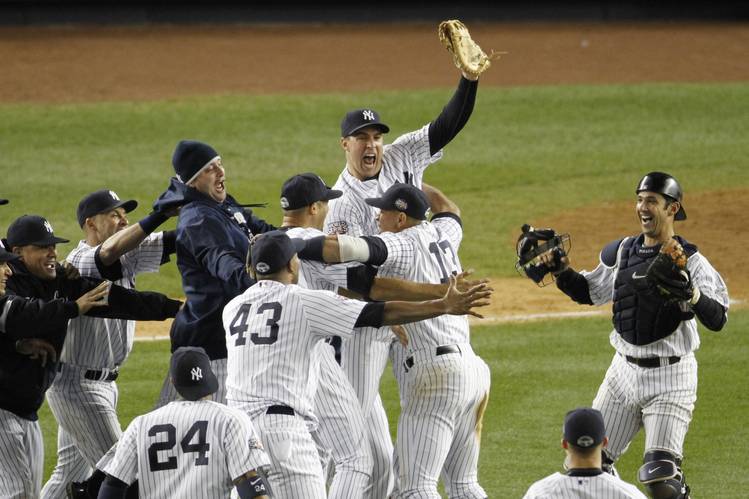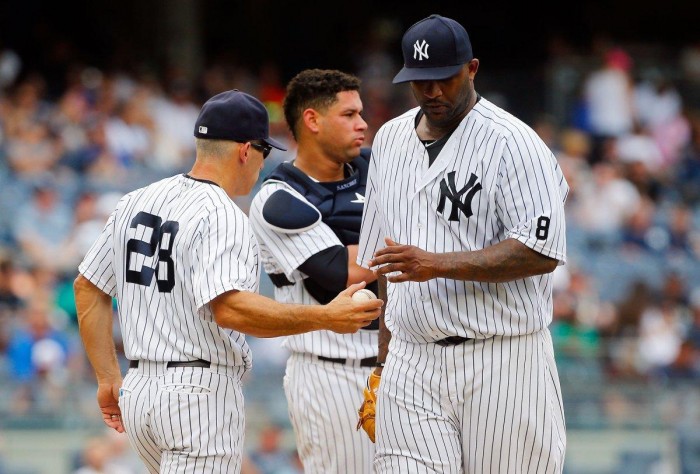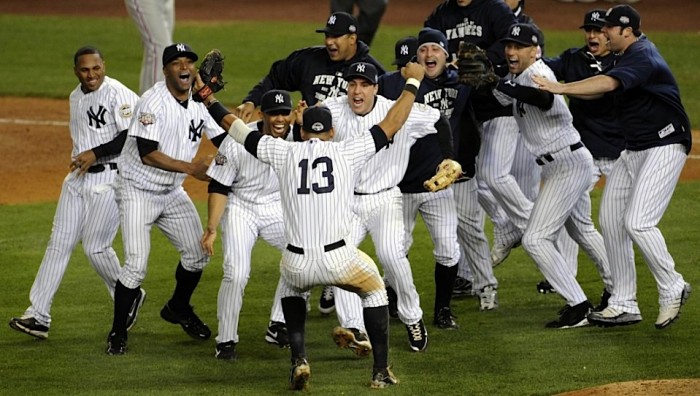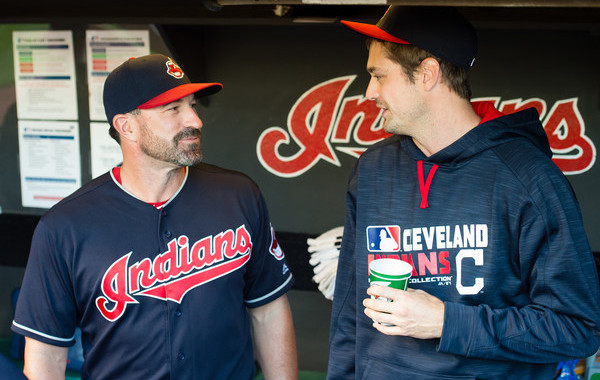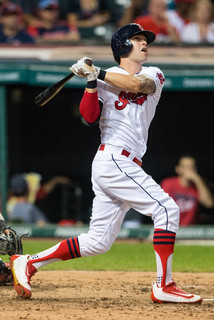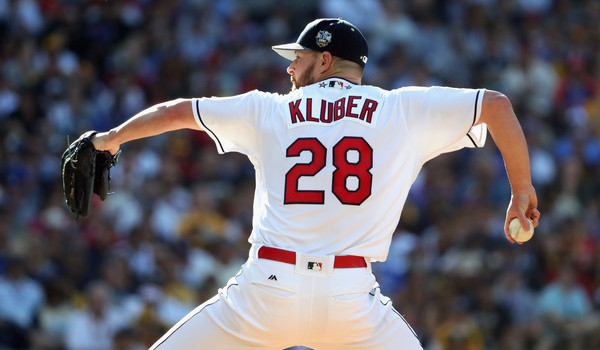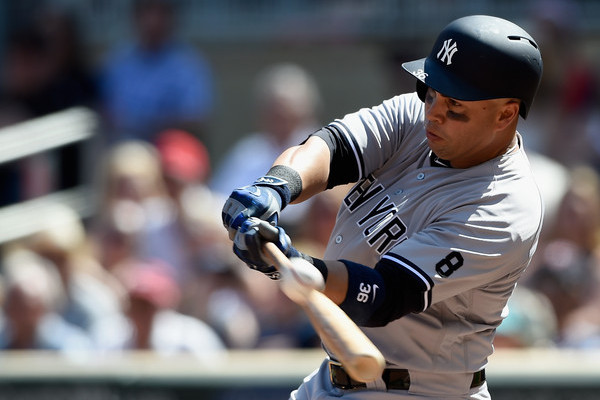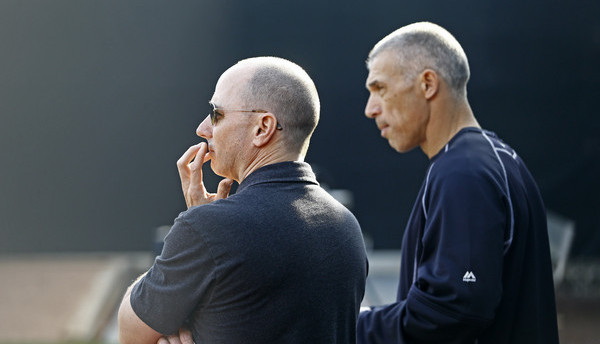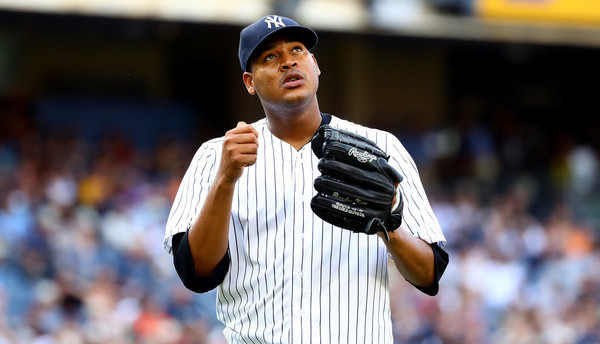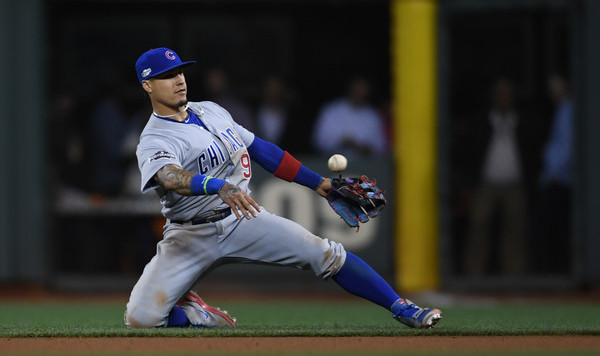
At the moment, four teams still have a chance to win the World Series. Someone will end a long title drought this year too. Among the four clubs still alive, the Blue Jays have the shortest title drought, and they last won in 1993. The Dodgers last won in 1988 and the Indians last won in 1948. The Cubs? There were only 46 states in the union the last time they won a championship. Seriously. Look it up.
Obviously the four teams still alive are all very good, and any time a team has success, there’s something that can be learned from them. Front offices around the league wouldn’t be doing their jobs if they didn’t look at these four clubs and try to figure out what they’re doing better than everyone. The Yankees, who have been thoroughly mediocre the last four years, are no different. Here’s one thing they can take from each of the four teams still playing.
Cubs: You can have a great defense without shifting
The Cubs had a historically great defense this season. Truly historic. In terms of simple defensive efficiency, which is the percentage of batted balls they turned into outs, the 2016 Cubs were the 75th best defensive team in history (out of over 2,000 team seasons). Baseball Prospectus rates them as the best defensive team ever in park adjusted defensive efficiency. Whether they’re first best or 75th best doesn’t really matter. The Cubs were a phenomenal fielding team in 2016. No doubt about it.
Now here’s the kicker: no team in baseball used fewer infield shifts than the Cubs this season. The shifts didn’t follow Joe Maddon from Tampa, apparently. Huh. Chicago used the shift for only 10.1% of the batters their pitchers faced in 2016. The next lowest rate belongs to the Royals at 10.6%. The Astros used by far the most shifts this summer (33.2%) and the Yankees used the seventh most (26.5%). They’re weren’t all that far away from being second (Rays, 29.3%).
How did the Cubs field such a great team without shifting? Well, it starts with having tremendously athletic players gifted with defensive tools. That’s kind of a prerequisite for a great team defense. The Yankees have a few of those players themselves. The Cubs also seem to emphasize their pitchers’ strengths rather than the hitter’s tendencies. They get the hitter to hit the ball where they want him to hit the ball, not where he wants to hit the ball. Make sense? It’s hard to explain, but they do it.
The Yankees allowed a .284 BABIP with normal defensive alignments this year and a .304 BABIP when using some kind of shift, which is, uh, backwards. You should be allowing a lower BABIP with the shift. This isn’t to say the Yankees should abandon the shift all together. That’s an overreaction. Perhaps scaling back on the shift would make sense though. I’m not really sure. Point is, the Cubs showed this year you don’t need to shift heavily to be a great defensive club.
Indians: Keep all your pitching depth. All of it.
It’s amazing the Indians are so close to the World Series considering they are without their No. 2 (Carlos Carrasco) and No. 3 (Danny Salazar) starters. Also, No. 4 starter Trevor Bauer cut his finger fixing his drone over the weekend and had to have his ALCS start pushed back from Game Two to Game Three. Injuries like that can cripple a team in the postseason. Could you imagine if the 2009 Yankees had lost A.J. Burnett and Andy Pettitte in September, and then Chad Gaudin cut his finger fixing his stupid drone in October? They’d be done.
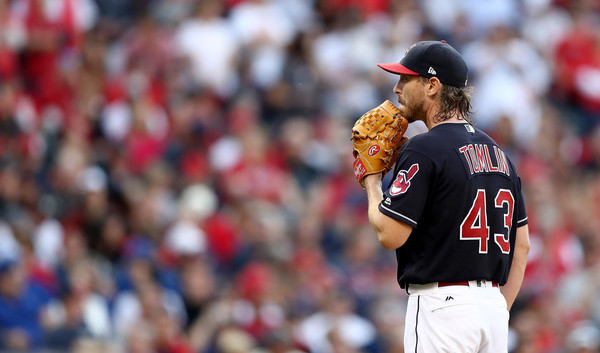
And yet, the Indians have won every single game they’ve played this postseason despite those injuries because of their pitching depth. Josh Tomlin, Cleveland’s nominal fifth starter who at one point in September was demoted to the bullpen, has given the team two strong outings in the playoffs. Lefty Ryan Merritt, who has eleven big league innings to his credit, will get the ball in Game Five tomorrow, if necessary. Rookie Mike Clevinger is the backup plan.
The Yankees do have some rotation depth at the moment. I’m looking forward to seeing more Luis Cessa and Bryan Mitchell next year. Chad Green too. Then there are Chance Adams and Jordan Montgomery. Chances are the Yankees will need most of these guys at some point next year, if not all of them. That’s baseball. That isn’t to say the team should make their pitching depth off-limits, because there’s always a point when it makes sense to trade someone, but hanging on to all of these guys sure seems like a smart move.
Dodgers: Postseason narratives are meaningless
The Dodgers have won four games this postseason. Noted playoff choker Clayton Kershaw has pitched in all four of them. Sunday night, when everyone expected him to melt down in the seventh inning because he had a 20-something ERA in the seventh inning of postseason games, he tossed a scoreless frame. It’s almost like there is no such thing as a bad seventh inning pitcher.
Anyway, I have no doubt the Yankees (and pretty much every other team) have bought into some of this stuff over the years. You can’t convince me Carlos Beltran’s postseason reputation didn’t factor into New York’s decision to sign him three years ago. (Beltran, by the way, has hit a less than stellar .250/.351/.393 in his last 25 postseason games.) These narratives are just that. Narratives. They’re fun stories to tell. They have no predictive value. Don’t get caught up in the hoopla. Just focus on getting the best talent possible and having it on the field more than everyone else.
Blue Jays: Don’t be whiny children
Does anyone actually like the Blue Jays? Outside Toronto, I mean. They’re the Rasheed Wallace of baseball. They complain about every call then bitch about it after the game. The other day Jose Bautista said “circumstances” were working against the Blue Jays in the first two games of the ALCS, and by “circumstances” he meant the home plate umpires. Late in the season the Blue Jays refused interviews with certain reporters — they literally hung media head shots in the clubhouses with giant red X’s across them — because they didn’t like some of the criticism.
Imagine scoring three runs total in three ALCS games and blaming it on the umpires. Imagine being so upset by something a reporter said or wrote that you boycott them entirely. Could they be any more thin-skinned? The Yankees are pretty good at avoiding this stuff, thankfully. Joe Girardi will occasionally say something about the umpires when there’s an egregious mistake, but I can’t remember the last player to openly complained like Bautista. So, the lesson to be taken from the Blue Jays is this: don’t be jerks. Give people a reason to like you. People around the country have enough reasons to dislike the Yankees as it is.
